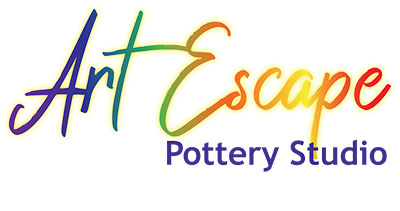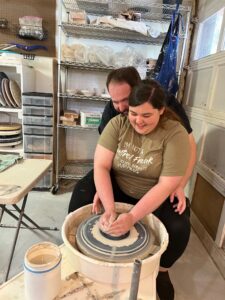Enhancing Physical Coordination with a Pottery Teacher
Pottery isn’t just about shaping clay into beautiful forms; it’s also a physical endeavor that requires coordination, dexterity, and control. For pottery students looking to improve their physical coordination, finding a great pottery teacher can be transformative. A skilled teacher can provide guidance, support, and encouragement, helping students refine their motor skills and achieve greater precision in their pottery practice. Here’s how enrolling in pottery classes with a knowledgeable teacher can lead to improvements in physical coordination:
Hands-On Guidance: A great pottery teacher offers hands-on guidance and instruction, helping students develop proper techniques for working with clay. Whether it’s centering clay on the wheel or trimming a pot, the teacher provides feedback and correction to help students refine their movements and achieve greater control.
Repetitive Practice: Pottery classes involve repetitive practice of various techniques, such as wedging clay, throwing on the wheel, and hand-building pottery. Through consistent practice, students develop muscle memory and fine-tune their motor skills, leading to improved coordination and precision in their pottery making.
Focus and Concentration: Pottery requires focus and concentration to manipulate clay effectively. A skilled teacher helps students cultivate these mental skills, guiding them through exercises that require sustained attention and mindfulness. As students learn to focus their minds on the task at hand, they also improve their physical coordination and control.
Balance and Stability: Working with clay on the pottery wheel requires a steady hand and good balance. A pottery teacher can help students improve their balance and stability through exercises and drills designed to strengthen core muscles and improve proprioception. By mastering the art of balancing clay on the wheel, students also enhance their overall physical coordination.
Hand-Eye Coordination: Pottery classes offer numerous opportunities for students to enhance their hand-eye coordination. Whether it’s shaping clay into precise forms or applying intricate surface decorations, students learn to synchronize their hand movements with their visual perception, improving their overall coordination and control.
Fine Motor Skills: Pottery making involves intricate hand movements and fine motor skills, such as pinching, squeezing, and carving clay. A pottery teacher guides students through exercises that target these specific skills, helping them develop greater dexterity and precision in their pottery practice.
Creative Problem-Solving: Pottery classes encourage creative problem-solving, as students learn to adapt and adjust their techniques to achieve their artistic vision. A skilled teacher fosters this creativity, challenging students to think outside the box and find innovative solutions to technical challenges. Through this process, students not only enhance their physical coordination but also develop their creative thinking skills.
Collaborative Learning Environment: Pottery classes often foster a collaborative learning environment, where students can observe and learn from one another. A supportive community of peers provides encouragement and inspiration, motivating students to push themselves and strive for greater mastery of their craft. In this collaborative setting, students can share tips, techniques, and insights that contribute to their overall development as potters.
Personalized Instruction: A great pottery teacher recognizes that each student has unique strengths, weaknesses, and learning styles. Through personalized instruction and feedback, the teacher tailors the learning experience to meet the individual needs of each student, helping them maximize their potential and achieve their goals. Whether it’s providing additional practice exercises, demonstrating techniques, or offering encouragement and support, the teacher plays a vital role in helping students improve their physical coordination and excel in their pottery practice.
In conclusion, finding a great pottery teacher can be instrumental in helping pottery students improve their physical coordination. Through hands-on guidance, repetitive practice, focus and concentration, balance and stability exercises, hand-eye coordination drills, fine motor skill development, creative problem-solving, collaborative learning, and personalized instruction, a skilled teacher empowers students to refine their motor skills, enhance their precision, and achieve greater mastery in their pottery practice. Whether you’re a beginner or an experienced potter, enrolling in pottery classes with a knowledgeable teacher can lead to significant improvements in physical coordination and overall craftsmanship.

